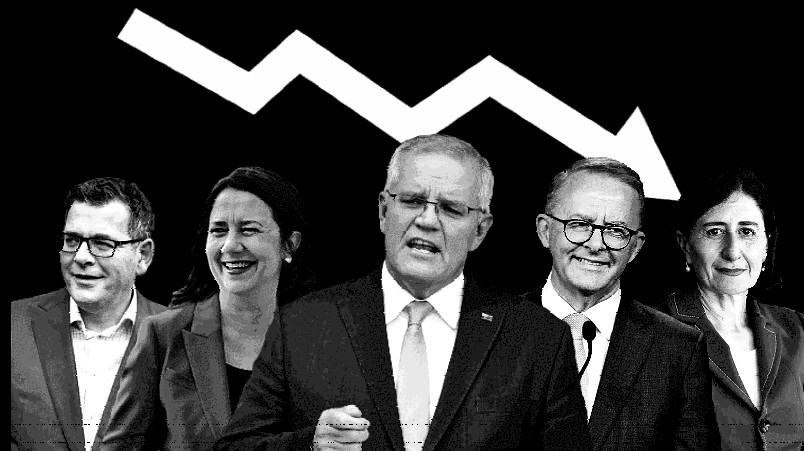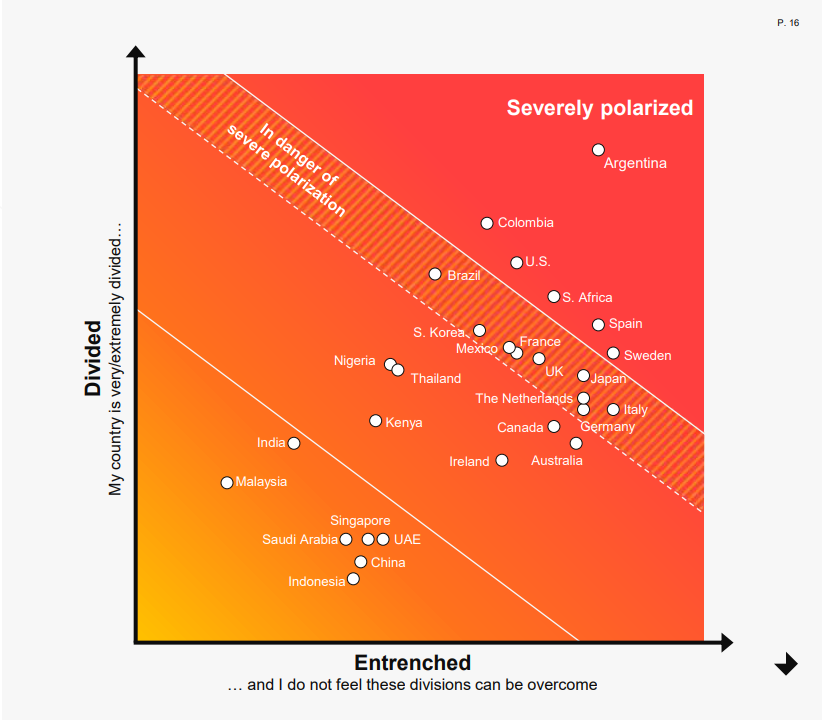Australia's trust in institutions, especially government, plummets; Australian media among world's most distrusted: Edelman Trust Barometer

Less trusting, more divided, and increasingly pessimistic — happy new year Australia. The trust we feel in key institutions such as government, business, NGOs, has fallen sharply according to the latest global Edelman Trust Barometer. Meanwhile media in Australia is one of the least trusted in the world.
What you need to know:
- Trust in government fell sharply according to Edelman's annual trust barometer.
- Media in Australia also suffered one of the steepest trust declines, per Edelman.
- The PR firm warned brands that consumers are increasingly demanding accountability and action on misinformation while helping to defuse an increasingly polarised Australian society.
- The report states: Businesses have "an essential role to play in the information ecosystem. Be a source of reliable information, promote civil discourse, and hold false information sources accountable through corrective messaging, reinvestment, and other action.”
- Consumers also want business leaders to take action on issues such as climate change and discrimination.
Institutional infidelity
Australians registered one of the largest falls in trust in their major institutions over the last year, according to the newly released 2023 Edelman Trust Barometer. They join South Koreans and Malaysians as one of the three communities surveyed with the largest reversals in their regard for NGOs, business, government and media.
Across the board, trust by Australians in these institutions was down 5 points, with government showing the biggest decline – 7 points.
The survey was conducted in November last year, meaning the government results in particular need to be viewed in the context of a Federal election in May and state elections in WA, Queensland and Victoria, all of which generated occasionally vituperative media coverage and even angrier commentary on social media.
But trust in business (-4 per cent) and NGOs (-5 per cent) also fell, as did trust in media (-5 per cent).
Indeed, Australians are amongst the most distrustful of media with only UK, South Korea and Japan returning worse results.
Optimism is also in short supply. There was an 11 per cent decline in people who said they felt they and their families would be better off in five years’ time.
Struggle Street Australians are more dubious of institutions than those living fat on the hog along Mahogany Row, although income disparity was less a predictor of trust here than in other countries.
However, it turns out we actually like our bosses, with trust rising one per cent. After working from home for three years, perhaps absence really does make the heart grow fonder.
Australia is also becoming more polarised. The survey describes the country as moderately polarised, however it is on the cusp of slipping into the second worst category — 'In Danger of Severe Polarisation,' a category which currently includes a clutch of larger European countries like the UK, Germany and France, but also Japan, Mexico and Brazil. Argentina, Columbia, and the US are rated as the most riven.

Global outlook
In terms of the global trends, despite concerns over disinformation, the world’s largest disinformation-accelerant — the technology sector — is also the most trusted industry and even improved its rating over the last year, as did education and food and beverages, the second and third most trusted sectors.
Family-owned businesses garnered the highest marks around the world, followed by privately held companies.
The authors note that business is the most trusted institution, but they say that comes with greater expectation and responsibility. They advise leaders to, “Leverage your comparative advantage to inform debate and deliver solutions across climate, diversity and inclusion, and skill training.”
“Business has an essential role to play in the information ecosystem. Be a source of reliable information, promote civil discourse, and hold false information sources accountable through corrective messaging, reinvestment, and other action.”
Brands may be wise to heed that advice, given consumers are increasingly paying attention: Almost nine out of ten respondents globally stated they expect CEOs to take public stands on the treatment of employees – one of the strongest results in the survey. Consumers are also looking for business leaders to take action on issues such as climate change and discrimination.
See the full report here.
